27 Charles Bronson Quotes
American actor Charles Bronson was best known for his macho roles as a police officer, gunfighter, and vigilante. Coming from a poor background, he worked in a coal mine till he entered the military service. Directors found him too masculine and not ideally suited for many roles. He was married three times and lived in a large house with his children. He shared the pain and anguish of his second wife who died of breast cancer. His own last days were ridden with illness and frustration when his body started giving up on him and he died at the age of 81. We have curated his quotes from his interviews, films, articles, etc. A collection of Charles Bronson quotes on fear, anger, frustration, violence, never, movies, etc.

When you act, your whole body is the instrument.
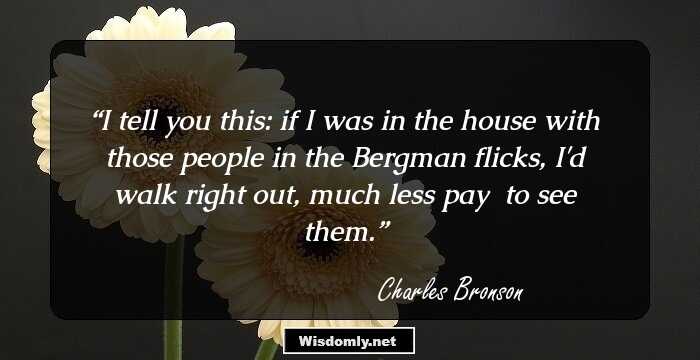
I tell you this: if I was in the house with those people in the Bergman flicks, I'd walk right out, much less pay $5 to see them.
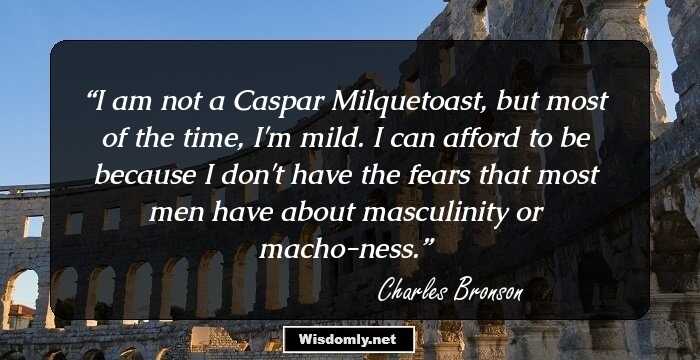
I am not a Caspar Milquetoast, but most of the time, I'm mild. I can afford to be because I don't have the fears that most men have about masculinity or macho-ness.
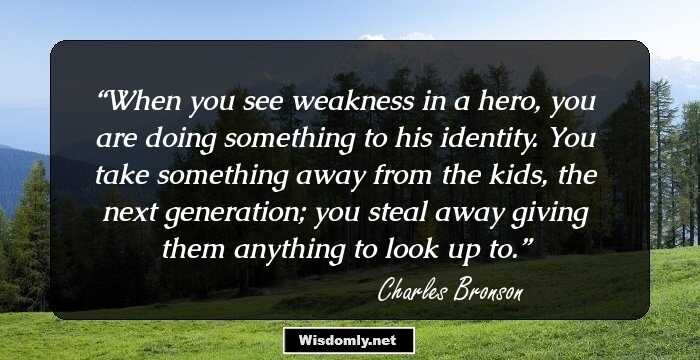
When you see weakness in a hero, you are doing something to his identity. You take something away from the kids, the next generation; you steal away giving them anything to look up to.

I hung around New York and did a little stock-company stuff. I wasn't really sure at that time if I even wanted to be an actor. I got no encouragement.
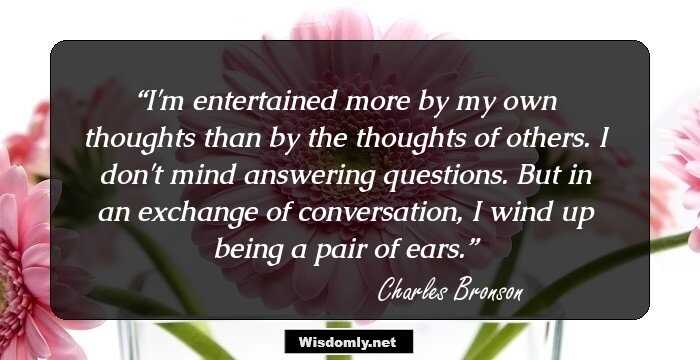
I'm entertained more by my own thoughts than by the thoughts of others. I don't mind answering questions. But in an exchange of conversation, I wind up being a pair of ears.
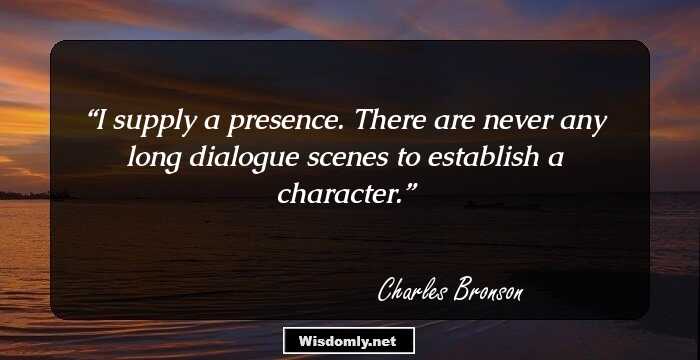
I supply a presence. There are never any long dialogue scenes to establish a character.
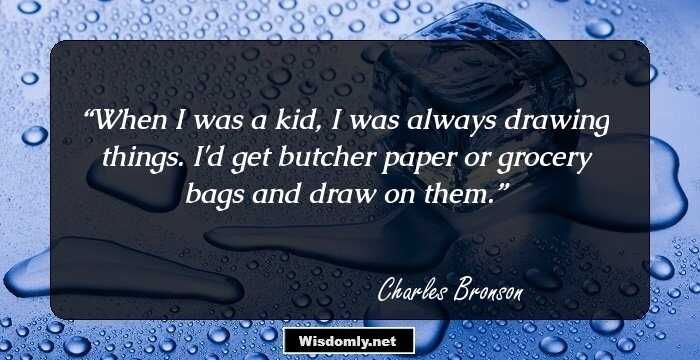
When I was a kid, I was always drawing things. I'd get butcher paper or grocery bags and draw on them.
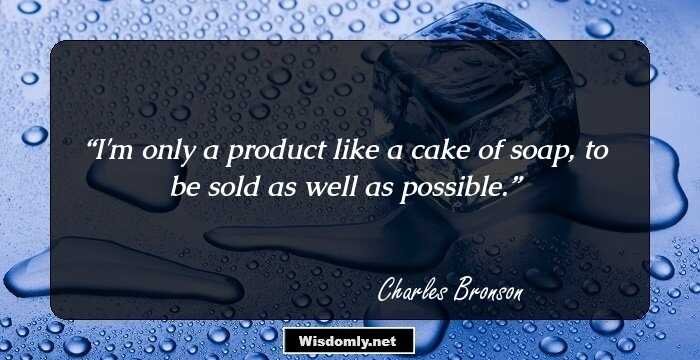
I'm only a product like a cake of soap, to be sold as well as possible.
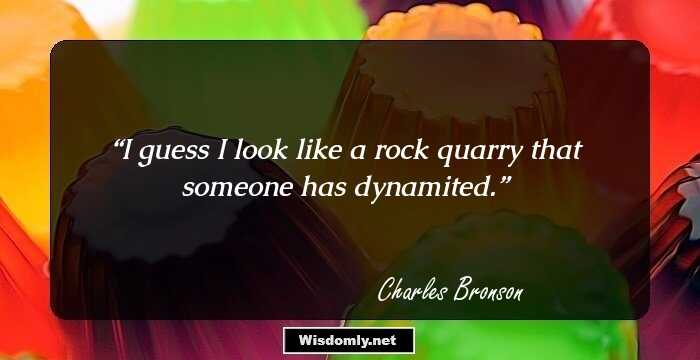
I guess I look like a rock quarry that someone has dynamited.
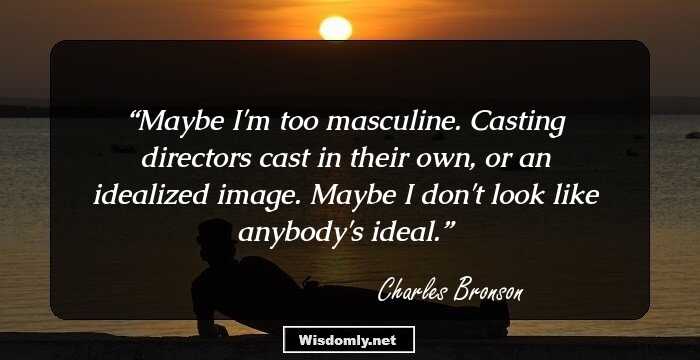
Maybe I'm too masculine. Casting directors cast in their own, or an idealized image. Maybe I don't look like anybody's ideal.
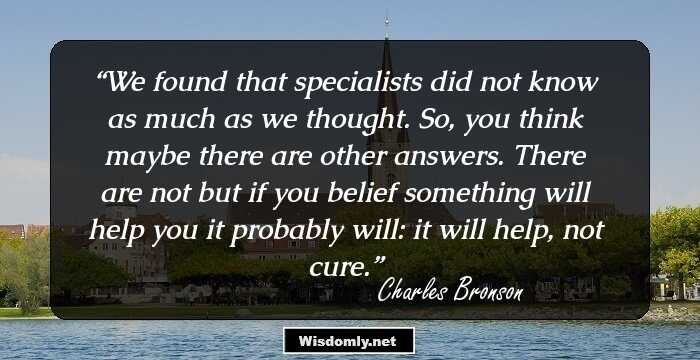
We found that specialists did not know as much as we thought. So, you think maybe there are other answers. There are not but if you belief something will help you it probably will: it will help, not cure.
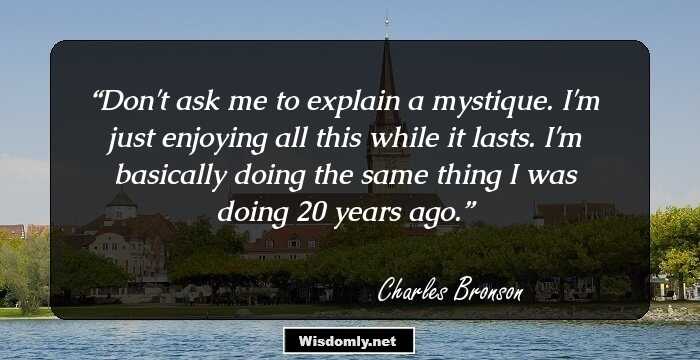
Don't ask me to explain a mystique. I'm just enjoying all this while it lasts. I'm basically doing the same thing I was doing 20 years ago.
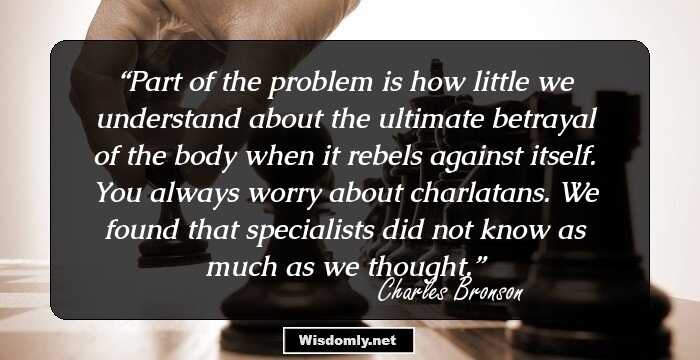
Part of the problem is how little we understand about the ultimate betrayal of the body when it rebels against itself. You always worry about charlatans. We found that specialists did not know as much as we thought.
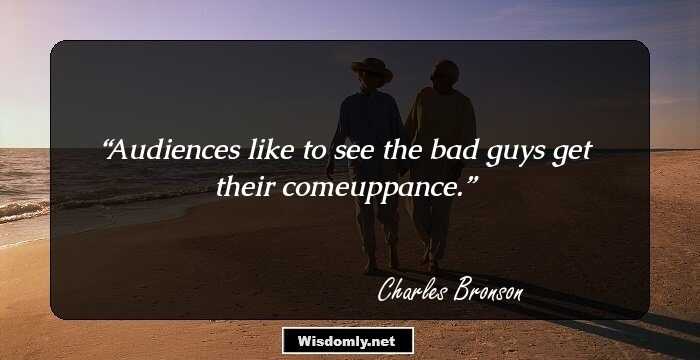
Audiences like to see the bad guys get their comeuppance.
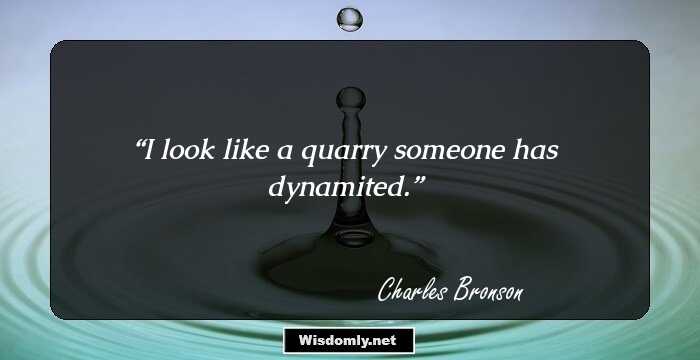
I look like a quarry someone has dynamited.
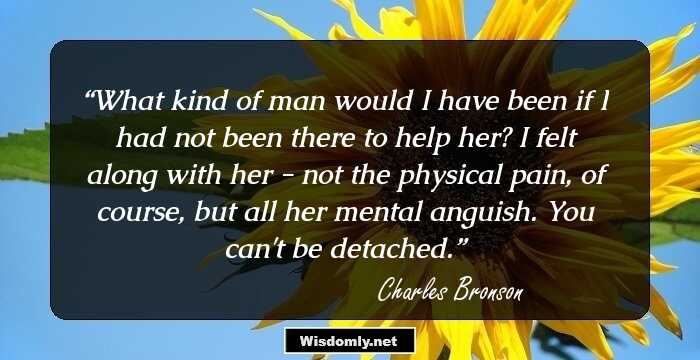
What kind of man would I have been if I had not been there to help her? I felt along with her - not the physical pain, of course, but all her mental anguish. You can't be detached.
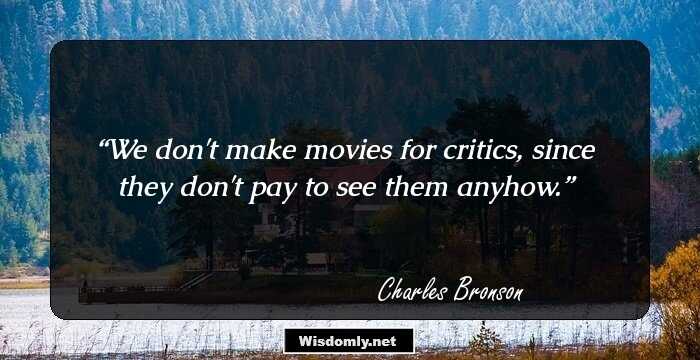
We don't make movies for critics, since they don't pay to see them anyhow.
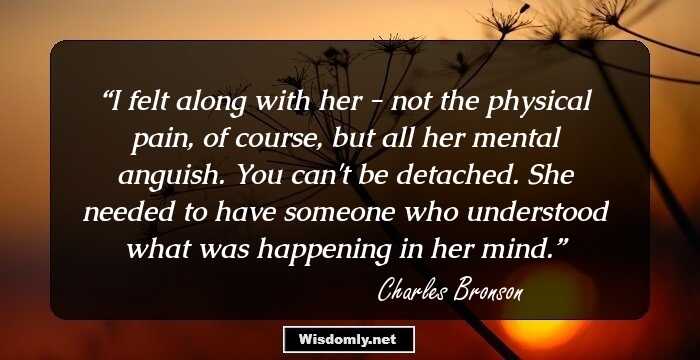
I felt along with her - not the physical pain, of course, but all her mental anguish. You can't be detached. She needed to have someone who understood what was happening in her mind.
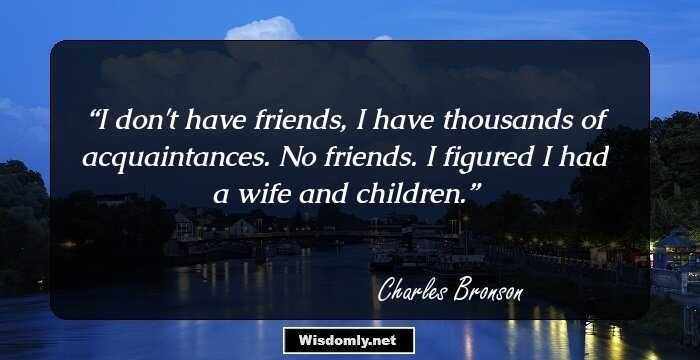
I don't have friends, I have thousands of acquaintances. No friends. I figured I had a wife and children.
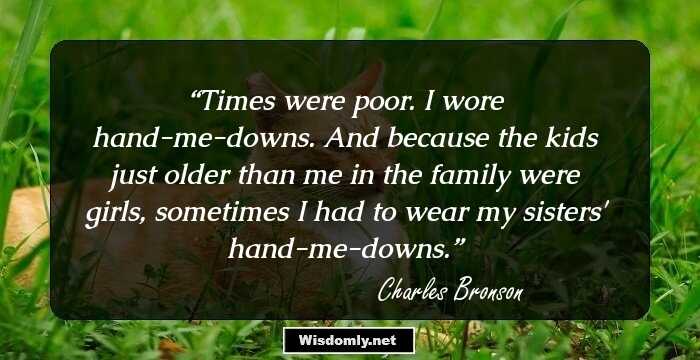
Times were poor. I wore hand-me-downs. And because the kids just older than me in the family were girls, sometimes I had to wear my sisters' hand-me-downs.
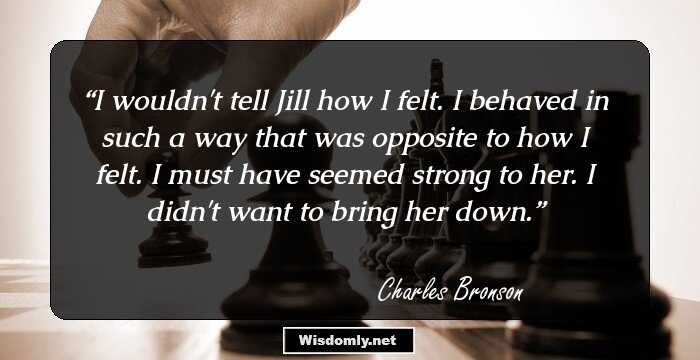
I wouldn't tell Jill how I felt. I behaved in such a way that was opposite to how I felt. I must have seemed strong to her. I didn't want to bring her down.
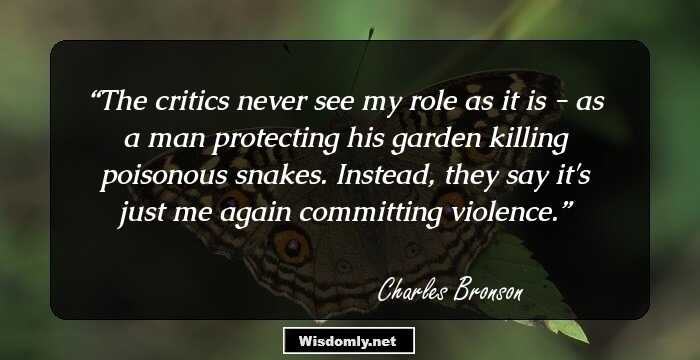
The critics never see my role as it is - as a man protecting his garden killing poisonous snakes. Instead, they say it's just me again committing violence.
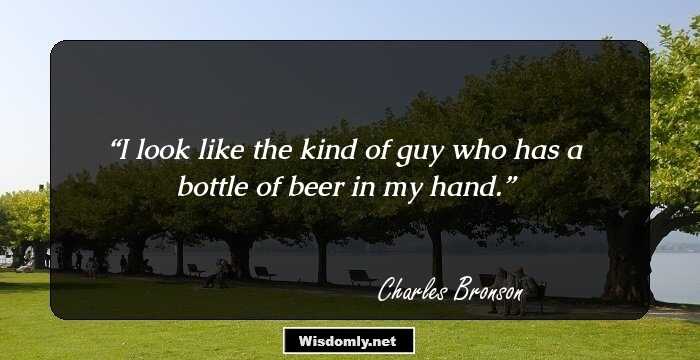
I look like the kind of guy who has a bottle of beer in my hand.
I can play the character better because of the roundness of my experience - because of the things I've been through. All those method guys - like that De Niro, Stallone, and what's his name, Pacino - they're all the same.
The fear really hits you. That's what you feel first. And then it's the anger and frustration. Part of the problem is how little we understand about the ultimate betrayal of the body when it rebels against itself.
In Ehrenfeld, we were all jammed together. All the fathers were foreign-born - Welsh, Irish, Polish, Sicilian. We were so jammed together, we picked up each other's accents. And we spoke some broken English. When I got into the service, people used to think I was from a foreign country.










